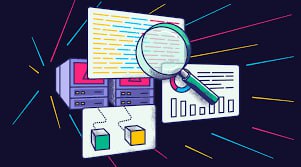
Logging is an essential aspect of website management, providing valuable insights into server activities, errors, and user interactions. However, managing multiple log files scattered across your cPanel hosting environment can be cumbersome. Centralizing logs into a single file simplifies monitoring and troubleshooting tasks. In this article, we'll explore how to set up centralized logging for your cPanel website and display the log file within the cPanel interface.
A- Centralized Logging Configuration
To centralize logging for your cPanel website, you can configure your web server to direct logs to a single file. Here's how to achieve this for commonly used web servers:
1- Apache
If your website is hosted on an Apache server, you can configure it to log all virtual host access and error logs to a single file. This can be achieved by editing the Apache configuration file (httpd.conf or apache2.conf) and adding directives to define the log file paths.
For example:
ErrorLog "/path/to/centralized/error.log"
CustomLog "/path/to/centralized/access.log" combined
Ensure the specified log file paths are writable by the web server process.
2- Nginx
For Nginx web servers, you can configure logging directives within the server block of your Nginx configuration file (nginx.conf). Specify the log file paths using directives such as error_log and access_log.
Example configuration:
error_log /path/to/centralized/error.log;
access_log /path/to/centralized/access.log;
Adjust the paths according to your desired log file location.
Once you've configured centralized logging on your web server, all access and error logs will be directed to the specified log files.
B- Displaying Log File in cPanel
To view the centralized log file within the cPanel interface, follow these steps:
1- Log in to your cPanel account.
2- Navigate to the "File Manager" tool.
3- Locate the directory where your centralized log file is stored. This directory should be accessible by the cPanel file manager.
4- Select the log file (e.g., error.log or access.log) and click on it to open.
5- cPanel's file manager includes a built-in text editor that allows you to view and edit the contents of files. You can use this editor to view the log file directly within the cPanel interface.
Alternatively, you can utilize cPanel's "File Manager" to download the log file and view it using a local text editor on your computer.
C- Benefits of Centralized Logging
Centralized logging offers several advantages for website administrators:
1- Simplified Monitoring: Accessing logs from a single file streamlines monitoring and analysis tasks.
2- Efficient Troubleshooting: With all logs consolidated, identifying and diagnosing issues becomes more efficient.
3- Enhanced Security: Centralized logging facilitates security auditing and detection of suspicious activities across your website.
Conclusion
Centralized logging is a valuable practice for managing cPanel websites, providing administrators with consolidated access to access and error logs. By configuring your web server to direct logs to a single file and utilizing cPanel's file management tools, you can easily monitor and analyze server activities from within the cPanel interface. Implementing centralized logging enhances efficiency, simplifies troubleshooting, and strengthens the security posture of your cPanel-hosted website.








